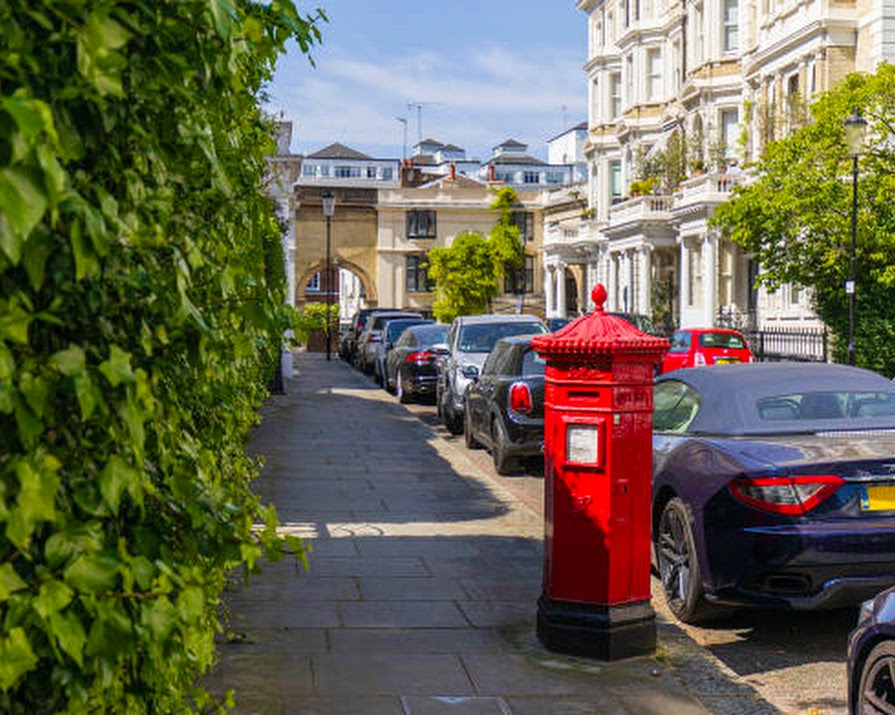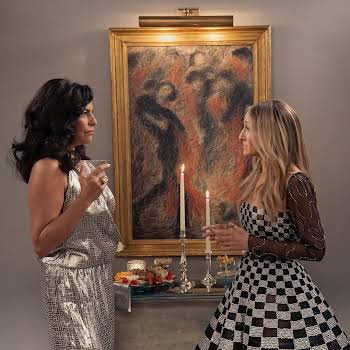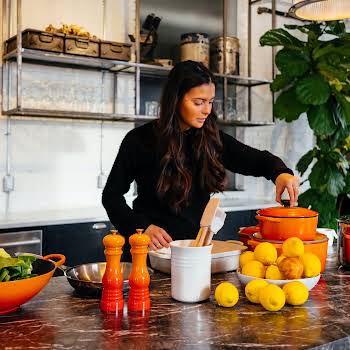
This “utterly disconnected” article on how the rich survive lockdown has gone viral with good reason
By Amanda Cassidy
20th Jun 2020
20th Jun 2020
It’s being described as the lockdown story nobody asked for. No wonder social media is aghast, writes Amanda Cassidy
“It’s a parody, right?” I texted the mum’s class WhatsApp in horror after reading the Financial Times article causing a furor this week. Apparently not, they write back, buzzing about the latest article to have gone viral.
The piece titled ‘The awkward lessons of my luxury lockdown in Kensington‘ details the plight of a wealthy Londoner as she navigates the Coronavirus lockdown. And even if it is just a ‘take’ on how the rich deal with lockdown, the reaction has been…explosive.
The writer, Shruti Avanti, charts her oh-so selfless acts of kindness by giving up spare rooms for the nanny, hiring a £65-95 an hour online tutor (depending on if it is chess or maths) and trebling her usual flower order with Freddie’s Flowers – a chic florist near her Chelsea home.
“I take comfort in knowing that over the past few months, staff, house guests, and my children’s online teachers may have seen or heard some bizarre things, but it has always been against the backdrop of a tidy room with fresh flowers.”
The bizarrely out-of-touch essay veers from showing off to cringeworthy and deeply insensitive: “As a freelance journalist blessed with an inheritance as well as a venture-capitalist husband, my work wardrobe is split in a rather self-contradictory manner between Chanel tweed blazers that I wear to interviews and athleisure for when I toil in front of a computer,” she writes, dead-pan.
If it is true, it is in shockingly bad taste. If it is meant to be a joke, it just isn’t funny.
“Neither fit the brief for Working From Home While Under Constant Electronic Surveillance. “Casual but groomed,” advised a personal shopper who encouraged me to look at boiler suits in linen or denim. Not one to veer too far from the familiar, I turned instead to Olivia von Halle for silk pyjamas in colours guaranteed to make the dullest Zoom meeting come alive”.
Disconnect
Oooookay…
My zoom mates are lucky to catch me with pants on at all. It has been said that money talks but wealth whispers. I think it is safe to say that in this case the author is screaming diamonds (and they feel pretty sharp to all of us down here). It also raises the question why a newspaper like the Financial Times would publish such a piece.
If it is true, it is in shockingly bad taste. If it is meant to be a joke, it just isn’t funny.
Many readers, however, pointed out that it was refreshing to see the honesty of the article because it highlights how utterly disconnected the super-rich are from everyone else.
“As Ocado’s grocery deliveries were whittled down to one a week and the food halls at Harrods, which had served customers throughout the second world war, shuttered early in the current crisis, we had to find our sustenance elsewhere.” writes Avanti.
“Fortuitously, the Chelsea gym that was my regular haunt BC (before Covid) was loath to leave its members vulnerable to the dangers of what has since been identified as “coronacarbs”. We can have little extras such as protein shakes, artisanal coffees and snacks delivered to our doorsteps.”

“My favourite bit is definitely the conscious benevolence of ensuring ‘The staff and house guests’ were cheered by fresh flowers every day.” wrote Jessica Lennard on Twitter. “NB this is happening within 10 minutes of Grenfell”.
Another on social media pointed out the stark chasm between what is happening in the world and the tiny and impenetrable bubble of the most privileged in society “Imagine the luxury of the police turning on their patrol lights to amuse your children rather than shooting them. Must be nice.” commented Melody Kane referring to the piece at the end of the article when the writer lists all the great help she has received.
“…Peter the postman who drops off my mail with a smile and a promise he will be back the next day; the police officers in Hyde Park who turn on the lights of their patrol car to amuse my children.”

Avanti evidently isn’t shy about outlining her good fortune. She has written in the FT in the past about her family background and wealth, describing her home in India as “an elegant bungalow on half an acre of some of the most expensive land in India.”
She also is very comfortable listing her family assets. “My father assumed control of assets that included an obscene pile of gold sovereigns, a holiday home, polo ponies stabled in England, three factories and 600 acres of agricultural land.”
In an ideal world, I’d also have moved in a masseuse and a chef. I’d love to have the money for private tutors instead of trying to catch a slippery 8-year-old and force them to sit at the kitchen table beside me attempting to simultaneously homeschool, work and plan the day’s meals. I’d love a bit of obscene gold myself.
“Coronavirus has been a great leveler,” I heard someone say on the news recently, referring to how we all clapped on the streets and bolted ourselves collectively in our homes in solidarity against the common enemy. “We are in this together” all our government slogans cried.
And true or not, we can pooh-pooh this article with faux outrage all we like, but the thing is that those with au-pairs and fancy restaurant delivery boxes and gardens did have a vastly different experience to those struggling in poverty, those unsafe in their homes, those trapped in difficult relationships for over a hundred days.
We weren’t in this together. Not really.
The gap between rich and poor is as disconnected now as it was before Coronavirus. Perhaps even more so. It is only the romantic that think otherwise. As amusing and as removed from reality as it may be, articles like this remind us of that echo-y chasm.
And that, to me, is the most obscene part of all.
Read more: ‘Am I the only one dreading the end of lockdown?’























